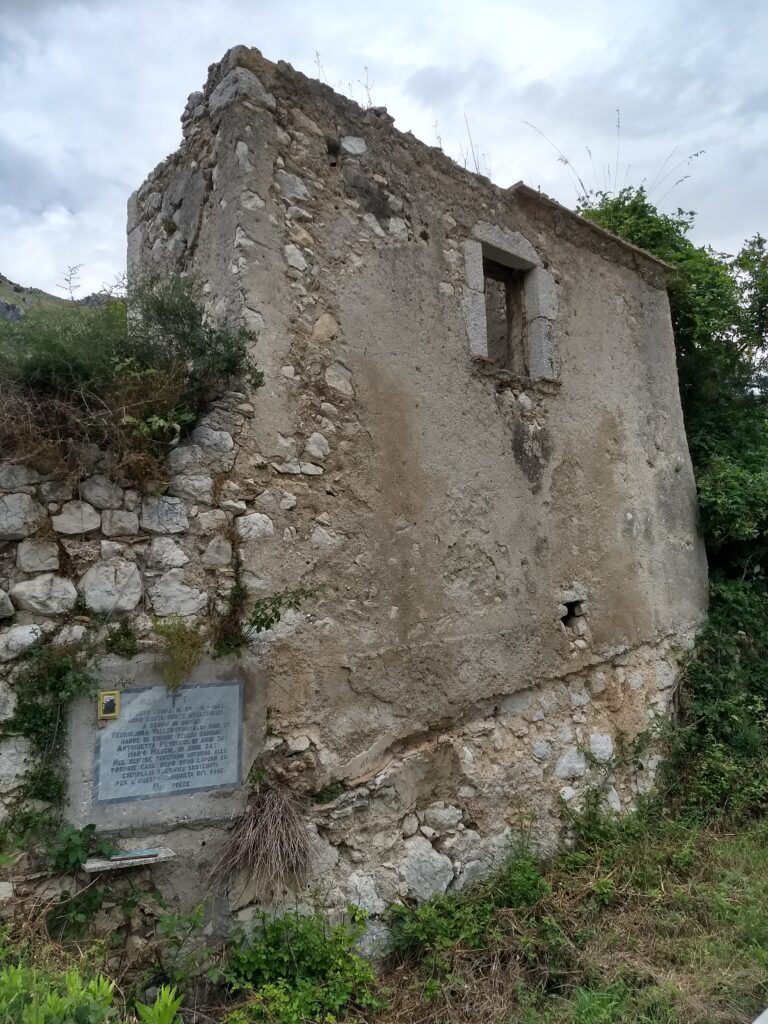by Christina Lynch
In the summer of 2018, I traveled back to Italy to do research for a new novel. I intended it to be set on September 8, 1943, the day that Italy changed sides in WWII. I didn’t have a protagonist or a story yet, just a date and some questions: What was it like to be in Italy on that day? How did people react? What did they say to each other? I hired a local guide who was also a historian to show me around the Cassino area, where fierce fighting took place during 1943-1944. She drove me around to the battle sites and massive cemeteries. The numbers came at me like bullets: 55,000 Allied dead in five months. Soldiers from 22 countries fighting on the Allied side. 14,000 mules used to move supplies. I had notebooks full of generals’ and divisions’ names, lots of dates, maps of troop movements, lists of casualties, but still no story. We drove to Anzio and Nettuno, where Operation Shingle took place, British and American egos clashed at the highest levels, and controversial decisions were made that are still debated. I found the endless rows of white crosses deeply moving, but not inspiring. Instead, I felt overwhelmed by the history: I knew I was inadequate to capture it. Not the right writer to tell that story. On my own again, I made one last stop at San Pietro Infine, a bombed-out village on the Lazio-Campania border that was still as it looked at the end of the war. The surviving inhabitants simply moved down the road and built a new village, leaving the place a shrine—or a warning to those who would dare try to forget what happened there. It was early morning, and except for some stray dogs, I was alone amongst collapsed houses and taverns, a church with its side sheared off. Ivy was trying to swallow the ruins, and the signage was fading. I drove off under glowering skies, still without characters or a plot, but I felt I was moving closer to a story I could tell. On a windswept, empty country road, I passed a ruined farmhouse. There was a sign on the side. I stopped my tiny Fiat, backed up, and read it. It was a chipped marble plaque, a memorial to three people killed during a robbery on October 10, 1944. One of them, it said, was a mother of five. “They were returning home after hard work and exemplary sacrifice made in the honest conquest of bread.” It was an echo of the language used in all of the memorials to the fallen soldiers. A chill went through me as I thought of how hard that year was for the Italians. No army mules resupplied them. After Italy changed sides and before the end of the war, 150,000 Italian civilians died. By October 1944, when Teodolinda Vallerotonda, age 35, was murdered on the spot I was standing, the Allies had moved through the area, up the boot of Italy towards the Gothic line. There was no food to eat; the armies that had camped there for six months—and those bombing them—had destroyed the fields, requisitioned the animals, and eaten anything stored. Winter was coming again.
What happened to Teodolinda’s five children?
I don’t know. But I decided not to write about what happened on the front lines of the war, to those lauded as heroes and written about in the history books. I decided to try to write about what happened to the women trying to keep their heads down and live their lives and raise their children, never knowing what the next day would bring.
I didn’t include Teodolinda herself in my novel—I wasn’t sure she would want that. But in Luisa and Clio, Fosca, Ilaria, and even poor Alba, I tried to honor Teodolinda and her countrywomen and their exemplary sacrifices made in the honest conquest of bread.
Learn more about Christina Lynch’s new novel, Sally Brady’s Italian Adventure, click this.
I drove off under glowering skies, still without characters or a plot, but I felt I was moving closer to a story I could tell. On a windswept, empty country road, I passed a ruined farmhouse. There was a sign on the side. I stopped my tiny Fiat, backed up, and read it. It was a chipped marble plaque, a memorial to three people killed during a robbery on October 10, 1944. One of them, it said, was a mother of five. “They were returning home after hard work and exemplary sacrifice made in the honest conquest of bread.” It was an echo of the language used in all of the memorials to the fallen soldiers. A chill went through me as I thought of how hard that year was for the Italians. No army mules resupplied them. After Italy changed sides and before the end of the war, 150,000 Italian civilians died. By October 1944, when Teodolinda Vallerotonda, age 35, was murdered on the spot I was standing, the Allies had moved through the area, up the boot of Italy towards the Gothic line. There was no food to eat; the armies that had camped there for six months—and those bombing them—had destroyed the fields, requisitioned the animals, and eaten anything stored. Winter was coming again.
What happened to Teodolinda’s five children?
I don’t know. But I decided not to write about what happened on the front lines of the war, to those lauded as heroes and written about in the history books. I decided to try to write about what happened to the women trying to keep their heads down and live their lives and raise their children, never knowing what the next day would bring.
I didn’t include Teodolinda herself in my novel—I wasn’t sure she would want that. But in Luisa and Clio, Fosca, Ilaria, and even poor Alba, I tried to honor Teodolinda and her countrywomen and their exemplary sacrifices made in the honest conquest of bread.
Learn more about Christina Lynch’s new novel, Sally Brady’s Italian Adventure, click this.
 Christina Lynch’s picaresque journey includes chapters in Chicago and at Harvard, where she was an editor on the Harvard Lampoon. She was the Milan correspondent for W magazine and Women’s Wear Daily, and disappeared for four years in Tuscany. In L.A. she was on the writing staff of Unhappily Ever After; Encore, Encore; The Dead Zone and Wildfire. She now lives in the foothills of the Sierra Nevada. She is the co-author of two novels under the pen name Magnus Flyte. She teaches at College of the Sequoias. In her own name, Lynch is the author of The Italian Party and Sally Brady’s Italian Adventure.
Christina Lynch’s picaresque journey includes chapters in Chicago and at Harvard, where she was an editor on the Harvard Lampoon. She was the Milan correspondent for W magazine and Women’s Wear Daily, and disappeared for four years in Tuscany. In L.A. she was on the writing staff of Unhappily Ever After; Encore, Encore; The Dead Zone and Wildfire. She now lives in the foothills of the Sierra Nevada. She is the co-author of two novels under the pen name Magnus Flyte. She teaches at College of the Sequoias. In her own name, Lynch is the author of The Italian Party and Sally Brady’s Italian Adventure. 